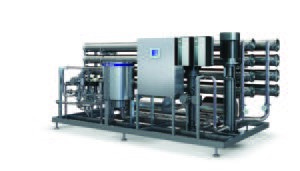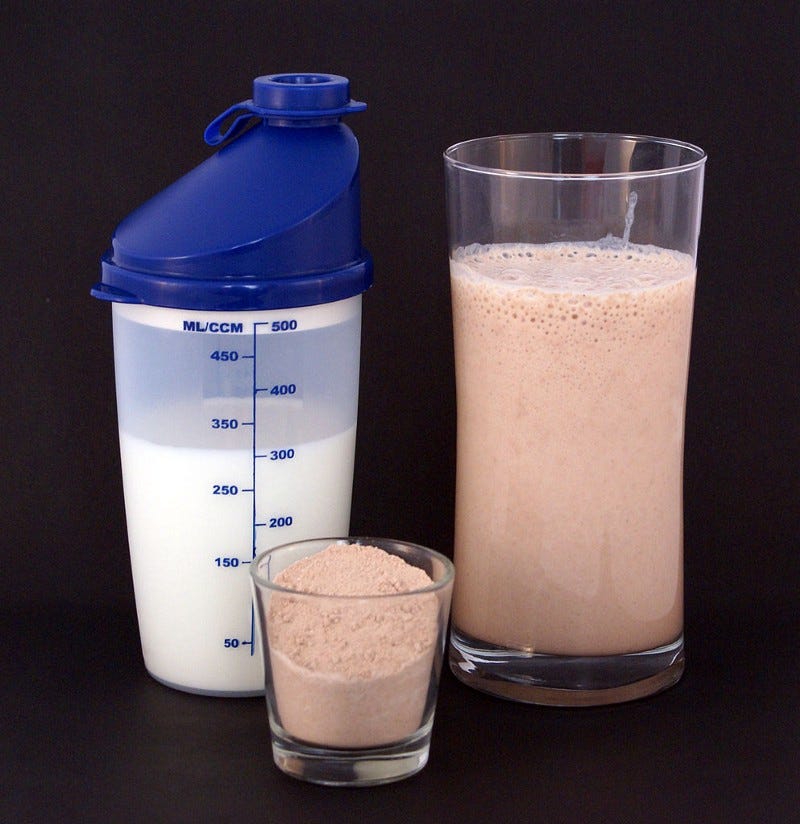Whey Protein — Isolates Versus Concentrates
Analyzing one of the most popular nutritional supplements in the world.
This article was originally published on my personal Medium account.
Analyzing one of the most popular nutritional supplements in the world.
Venture down the supplement rabbit-hole, and you might emerge more confused than whence you started. Variety and options can elicit daunting complexity, and reading between the marketing-embroiled lines in order to make an informed decision can become an exercise in frustration. One such space in the supplement world worth exploring is whey protein supplementation. It’s been generally perpetuated that adding whey protein to your diet is a positive move. As I’m sure you are aware, the most common forms of whey protein on the market are isolate and concentrate.
If you’ve landed here wondering which purchase suits your needs, then you’ve come to the right place. Let’s inspect the caveats, differences, and underpinnings of the two popular members of the whey product family, so that you can decide whether or not to shell out extra cash for whey isolate.
Understanding Whey
Whey is one of two proteins contained in milk. It is separated from milk by coagulation. Curds containing casein, the second milk protein, are separated from the milk, and the remaining protein substance is whey. Essentially, it’s the bi-product of cheese production. (1) After initial separation, it is processed and filtered down via various membranes. Microfiltration, ultrafiltration, and nanofiltration, paired with reverse osmosis and other techniques, work in conjunction to reduce bacteria, fat content, and other undesirable components of a whey product. These techniques may be used in synchrony or individually to produce varying concentrations of whey. (2)

The naming distinction between whey protein concentrate and isolate comes from the ratio of protein to total product volume, as dictated by filtration method. Whey proteins labeled “concentrate” purportedly tend to offer around 50–80% protein content, while isolates typically rank above 90% in protein concentration.
Whey Protein Isolate Appears to Be the Obviously Superior Choice
Protein Synthesis
In general, whey protein has been shown to have muscle building properties if consumed post-workout (albeit marginal by comparison to some of the marketing claims out there). (3) This effect is likely augmented by whey’s inclusion of leucine, a BCAA widely believed to stimulate muscle protein synthesis. Both whey concentrate and isolate will exhibit similar effects in this regard, if the same amount of protein by weight is consumed in both servings. That being said, because the concentration of protein is lower in whey concentrate, you will have to consume more calories to derive the same amount of protein as in the isolate counterpart, since you’d be consuming greater quantities of fat and carbohydrates.
Lactose and Bloating
For those sensitive to milk products, whey isolate is generally a wiser selection. True whey isolate is separated from lactose during the filtration process (4). The reduction of fat and carbohydrates in this form of whey also tend to reduce commonly cited bloating symptoms brought about by cheaper whey concentrates.
. . .or Is It?
As noted, protein synthesis rates between whey concentrate and isolate tend to be similar when protein content is the same across servings. In fact, protein supplementation in general seems to enhance muscle protein synthesis. (5) That being said, muscle protein synthesis only appears to be enhanced by supplements up to the point of recommended protein intake for athletes as generally accepted by the literature (around 0.8 grams per pound of bodyweight). In other words, total protein intake is a far more telling indicator than supplemented whey protein. Consuming whey protein is not a magic solution for muscle building when all other variables are in-check.
Nonetheless, muscle protein synthesis is just one mechanism of hypertrophy. We can’t lend it the end-all be-all credence that many have given it in the past in light of recent research. (6) Likewise, the notion of fulfilling an “anabolic window” with fast-acting protein is also a massively over-hyped nutritional principle. (7) Getting wrapped up in these semantics is counterproductive. Let it be known that you don’t necessarily need to supplement with whey to build muscle. You can do so just as effectively consuming protein by other means. Even pea protein, a vegan friendly option, has been demonstrated to have similar protein synthesizing effects to whey supplementation. (8)
To Whey or Not to Whey?
Pragmatically, whey can be an effective protein supplement for those struggling to hit their protein target day-to-day. Its liquid form lends itself well to quick consumption, and while the protein-synthesizing benefits are arguably relatively minuscule, they can boost the tip of your nutritional pyramid if the foundation is strong. Thus, supplementing with whey to compensate for a low total protein intake is not a bad idea, but keep your muscle-building expectations realistic and in-check.
As such, if your dietary aim is to lose body fat, then whey protein isolate gives you the most protein bang for your caloric buck. The processes involved in straining whey isolate do incur some expense, but strategically reducing overall liquid calories, especially from carbs and fat, is an effective contributor to satiety for anyone looking to cut some fat. If you don’t mind some lactose and have plenty of calories to spare, whey protein concentrate will serve you just fine.




